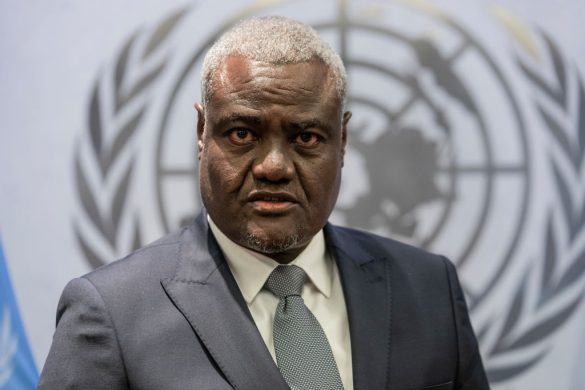Somaliere rundt omkring i verden sender 2 til 3 gange flere penge til hjemlandet end det modtager i bistand. Men frygt for at penge går til støtte for f.eks. terror har fået britisk storbank til at lukke flere konti, der bruges til overførslerne.
NAIROBI, 19 September 2013 (IRIN): Millions of people in Somalia rely on money sent from friends and relatives living abroad to meet the expenses of day-to-day living. These remittance flows are thought to be two or even three times greater than the amount spent on humanitarian aid.
But recent months have seen a flurry of warnings that remittances flows from the UK will be drastically curtailed because of what some regard as the overzealous application of regulations by one UK bank.
On 16 September 2013, the Intergovernmental Authority on Development (IGAD), a group of east African states, entered the fray, saying in a communiqué that “an essential lifeline” for “families and communities who are already in poverty” could be cut off as a result.
This briefing analyzes the current anxiety and looks ahead to how a sustainable system of remittances can be put in place.
How important are remittances to Somalia?
Extremely. Estimates of their annual value range from US$1 billion to $2 billion. The US is the largest source country, while an estimated $160 million is sent from the UK every year. In some parts of Somalia, 40 percent of the population receives regular remittances, with 80 percent of them spending the money on basic services.
Few countries in the world are more reliant on remittances than Somalia. More than two decades of civil conflict have left the country’s formal economy and banking sector in ruins. Remittances have replaced this sector, not only boosting the meager incomes of families but also allowing the private sector to do business and, increasingly, providing aid agencies with a more efficient way of responding to drought and famine.
The vast majority of the money is sent via money transfer companies, according to recent research, which also indicated that many recipient households depend on a single relative abroad for such assistance. “If the viability of the transfer system were to break down in an area where the single sender of support is located, effectively preventing them from being able to provide support, the effect on many of the households would be severe. Basic food security would be threatened,” said a report by the UN Food and Agriculture Organization (FAO).
So what’s the problem?
A growing perception of risk. Because it is impossible to know what remitted money will be used for, or even, given the lack of national identity documents in most of Somalia, exactly who will receive it, authorities fighting terrorism and money laundering are wary of the remittance system. This is especially true in the context of Somalia, where an insurgency with links to al-Qaeda is active, and where effective state regulatory bodies have yet to be set up.
The latest manifestation of this perception of risk is a decision by Barclays bank to close the accounts of more than 100 remitters, or money transfer organizations (MTOs), four of which have dealings with Somalia, at the end of September 2013.
Similar moves have recently been taken by a number of banks in the US.
Læs hele artiklen: http://www.irinnews.org/report/98793/briefing-are-remittances-to-somalia-doomed (begynd ved mellemrubrikken ”Why are the accounts being closed?”)















